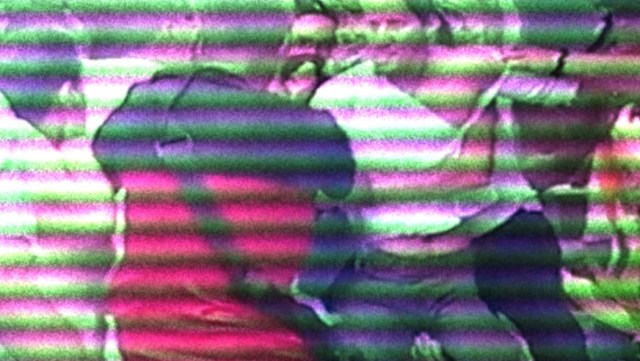
After the opposition leader was the victim of a violent aggression after an event in Cojedes on June 11th, he got more support from abroad than from his domestic allies.
By Caracas Chronicles – Raúl Castillo
Jun 15, 2022
Juan Guaidó was punched, pushed, and insulted on Saturday, June 11th, while visiting the city of San Carlos, capital of Cojedes, a former chavista stronghold currently ruled by opposition governor Alberto Galíndez. This attack on the man that was recognized as Venezuela’s caretaker president by more than 60 countries and the entire opposition, showcased the three main features of his position at this moment: he’s the main target of the Maduro regime; the support he has from the parties and the international community is more discrete; and his own credibility among the population, even when he suffers violence against him, is dimming.
What happened?
That morning, Juan Guaidó was taking part in a tour in San Carlos. Visiting that city was one of many activities the opposition is doing in the regions to promote their strategy for the presidential elections that are supposed to happen in 2024. In fact, Guaidó wasn’t the only one on tour: Carlos Prosperi, from Acción Democrática, and Juan Pablo Guanipa, from Primero Justicia, were in Anzoátegui and Barinas, respectively. Only Guaidó experienced violence.
After completing his route through San Carlos, Guaidó was having lunch at a restaurant with Voluntad Popular members when, as you can see in the videos on social media, several people tried to access the place shouting “get out Guaidó” and hitting the windows. Once inside, they pushed Guaidó out while hitting him. Unable to defend himself and without a security detail, the opposition leader left the place with a ripped-out shirt and some bruises.
Other images published by Guaidó’s team show bullet holes in the armored car he was traveling in.
Who attacked him?
According to the version by Guaidó’s communications team, the attack was coordinated by Nosliw Rodríguez and Marcos Mendoza, chavista lawmakers elected to the National Assembly (AN) in 2020 to represent Cojedes. Rodríguez, 33 years old, had to leave the AN when she ran for the governorship in the regional elections of 2021, where she was defeated by Alberto Galíndez.
In the videos we can see how Rodríguez and Mendoza were leading the storming of the restaurant, making their people shout “asesino” and “traidor”.
In 2017, when she was already a deputy in the AN, Rodríguez said the opposition was “organized crime”. That same year, according to NGO Transparencia Venezuela, she didn’t attend 79% of sessions, which by the time had an opposition majority.
What did the Maduro regime say?
After the attack, chavismo used its propaganda machine to spread the version that Guaidó’s aggressors were people from his former party, Voluntad Popular. This time, for a change, the narrative didn’t come from the high ranks of PSUV but through public media and pro-regime journalists.
“Opposition militants face and expel Guaidó from an assembly in Cojedes,” tweeted the state-owned Agencia Venezolana de Noticias. Madelein García, a reporter for propaganda outlet TeleSur, used the same version and said that the “trial” of Guaidó would be done by the people. “The worst sentence is despisal,” she tweeted. Cazadores de Fake News, a fact-checking account, denounced this as misleading.
But chavismo mobilized its international tentacles as well. By analyzing 81,052 retweets with the word “Guaidó”; Cazadores de Fake News found that pro-chavista accounts in Venezuela (25.28% of interactions), the U.S. (7.91%), Mexico (7.74%), and Cuba (3.85%) worked as a team to spread the versions against Guaidó. The opposition that is critical of Guaidó amplified the chavista narrative about the nature of the attack (6.48% of interactions), and some accounts in Turkey, writing in Turkish, tweeted against Guaidó as well (4.7% of interactions).
Chavismo has a long history of making organized attacks look like spontaneous displays of popular anger. On June 4th, in the Barrio Cuatricentenario in Maracaibo, chavista groups attacked Guaidó’s followers – according to the opposition – with a rain of plastic chairs. “Guaidó triggers some passions,” tweeted an always ironic Jorge Rodríguez. Diosdado Cabello showed the video in his show Con el Mazo Dando, adding background music and the traditional editings to make Guaidó look ridiculous.
…
Read More: Caracas Chronicles – A symptom of Venezuela’s political climate
…

